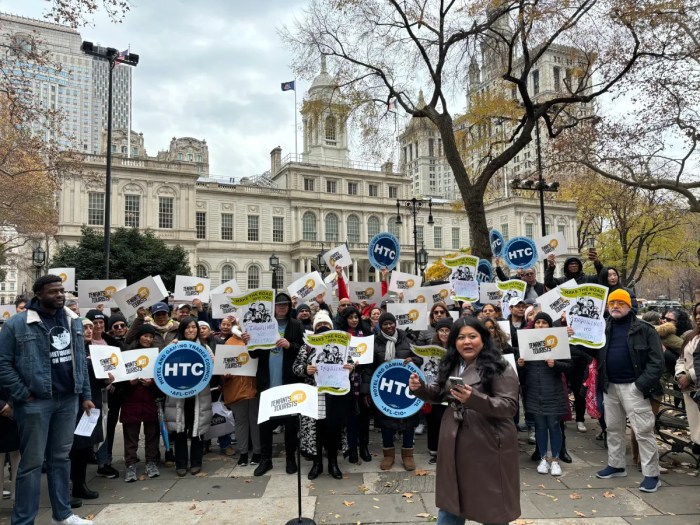By Kelsey Durham and Juan Soto
A day after the election, a heated primary between GOP candidates Grant Lally and Stephen Labate was too close to call as the two men awaited the final results that will decide who appears on the Republican ticket for a chance to upset U.S. Rep. Steve Israel (D-Melville) in November.
As of Wednesday, Republican Party-backed Lally, who will also run on the Conservative ticket later this year, held a 2 percent lead over Labate, 51 percent to 49 percent, according to the city Board of Elections.
But absentee ballots for the June 24 election were still being tallied and would take a few days before all votes were accounted for, a spokesman for Lally’s campaign said Wednesday.
Despite a series of events leading up to the election that included a petitioning lawsuit and a police complaint over alleged stalking, the much-anticipated primary between the two residents of Long Island, where much of the district is, failed to deliver much voter turnout in Queens.
The BOE opened polling locations in Little Neck, Douglaston, Whitestone and Bay Terrace — the only four Queens neighborhoods in the district — but BOE volunteers running the sites said they spent much of the day looking for ways to pass the time.
As of 4 p.m. Tuesday, site coordinators at PS 169 in Bay Terrace said a total of 37 people had come out to vote since the polls opened at 6 a.m.
“We had people come in today who didn’t even know who was running or what race this was,” said Sylvia Johnson, a BOE coordinator who has been working the primaries for the past five years. “We even had registered Democrats come in asking whether or not they had to vote.”
One polling place in Douglaston, PS 98 on 235th Street, was decorated with several signs reading “Vote Here” in multiple languages, but the building’s only unlocked door was in the back and was not visible from the streets surrounding the school, and the few voters who did show up were confused about how to get inside.
Joshua Sussman, a site coordinator at PS 169, said he had never seen such low turnout in the 10 years he has been working at the primaries, but he said he was not surprised to find such a small number of voters because he did not think the candidates made much of an effort to publicize themselves in Queens.
“This is not a shock because the campaigning was nil,” he said.
Despite the BOE calling registered Republicans prior to the election to remind them to vote, he said many of them reacted the same way and told him they were not even aware there was an election coming up.
“We actually had a bet going on how many people would show up,” Sussman said. “I picked 35, so we’re a little over. I lost.”
Meanwhile, in the southeastern part of the borough, U.S. Rep Gregory Meeks (D-Jamaica) easily beat his opponent in Tuesday’s primary contest. The southeast Queens congressman is on his way to his ninth term in the House of Representatives.
According to unofficial results from the BOE, with 98 percent of the voting precincts reporting, Meeks won 6,799 votes in the race, while his rival, accountant Joseph Marthone, won 1,515. Meeks got 81.78 percent of the ballots and Marthone 18.22 percent.
This was the second time the accountant had challenged Meeks for his congressional seat.
Voters who went to the windowless polling station in the basement of Queens Central Library in Jamaica said coming out to vote was important to them.
“The same way I have rights, I have duties,” said Amanda, a Jamaica resident for the past 25 years, who did not give her last name. “Our politicians decide our future.”
But with all the media attention focused on the hotly contested congressional primary between Rep. Charles Rangel (D-Harlem) and Adriano Espaillat in northern Manhattan, Amanda thought for a moment that she was participating in that election across the river in another borough.
Over in western Queens, Rep. Nydia Velazquez (D-Brooklyn) beat back a challenge from Jeffrey Kurzon.
With 97 percent of the vote counted, the incumbent had 82 percent vs. 18 percent for Kurzon. face Conservative Allan Romaguera in the general election.
The 7th Congressional District snakes through Brooklyn into the southern tip of Manhattan and up into the Queens neighborhoods of Maspeth, Woodhaven and Ridgewood.


































